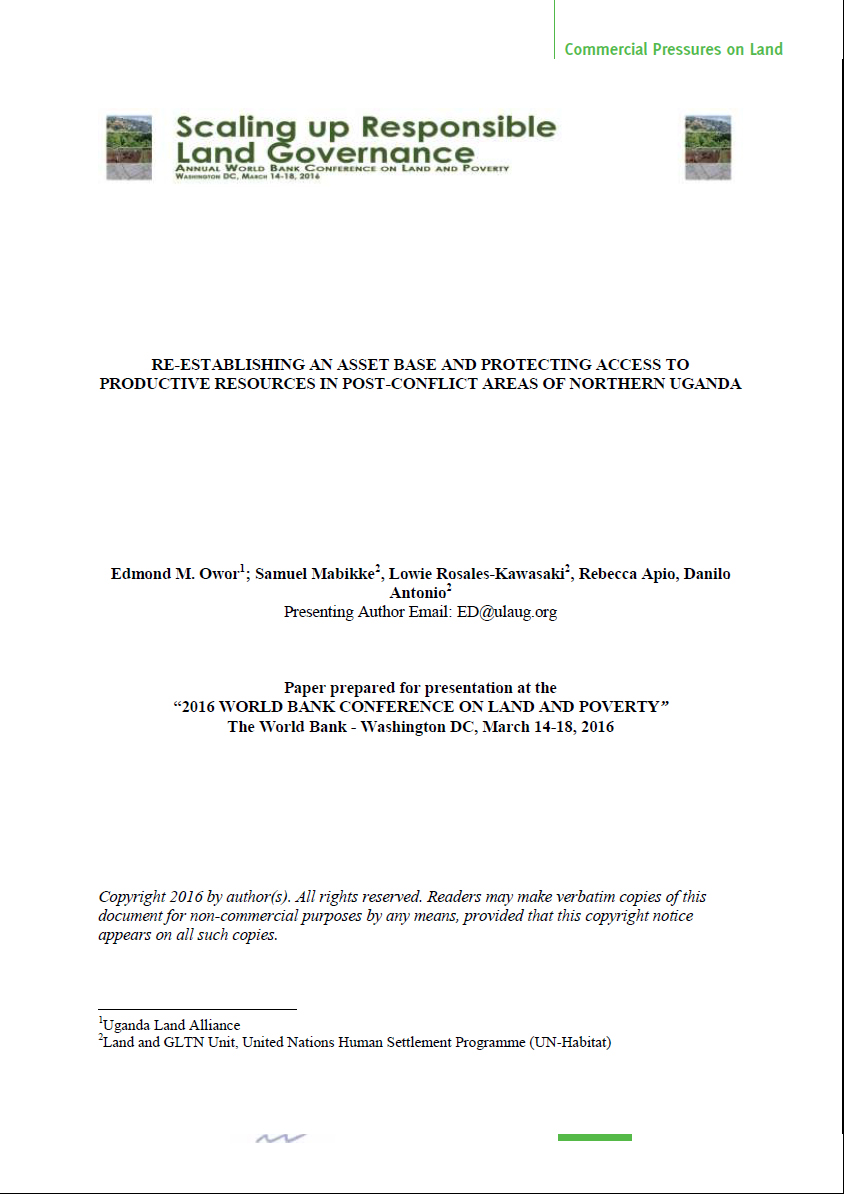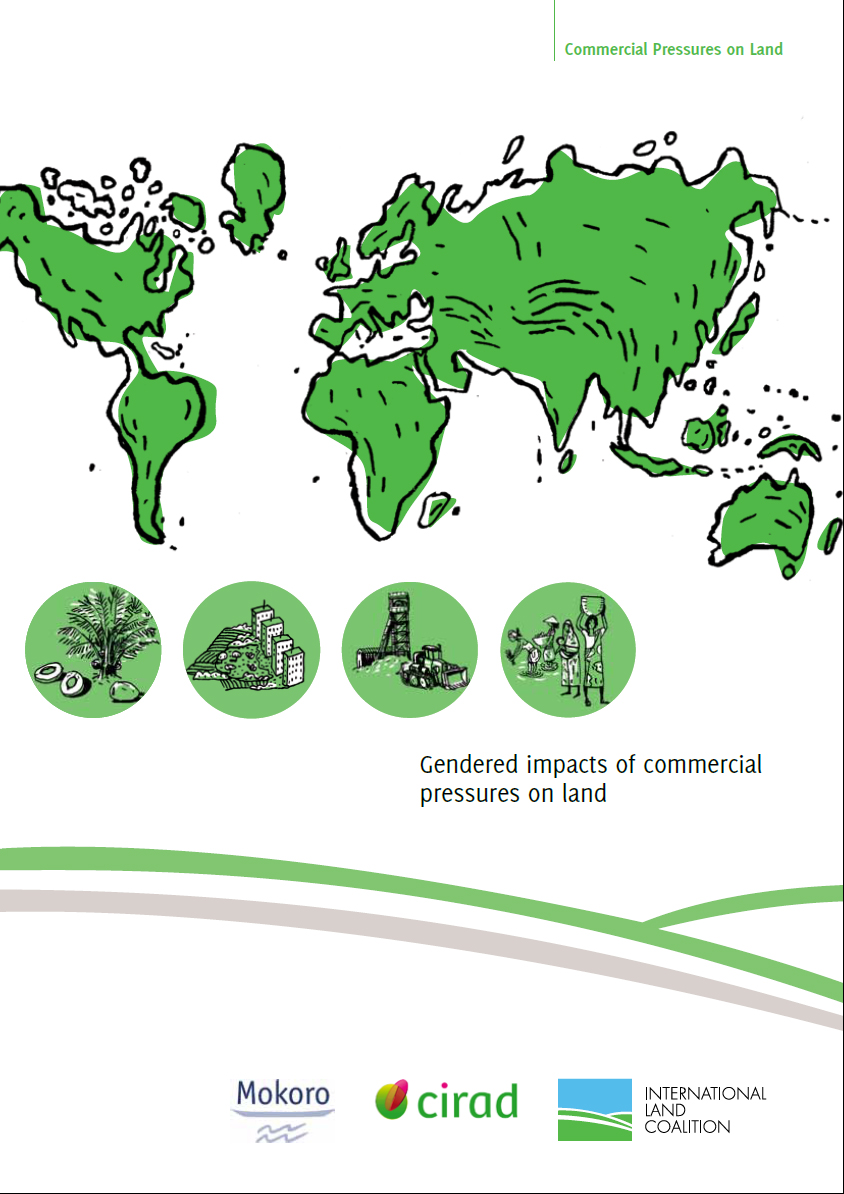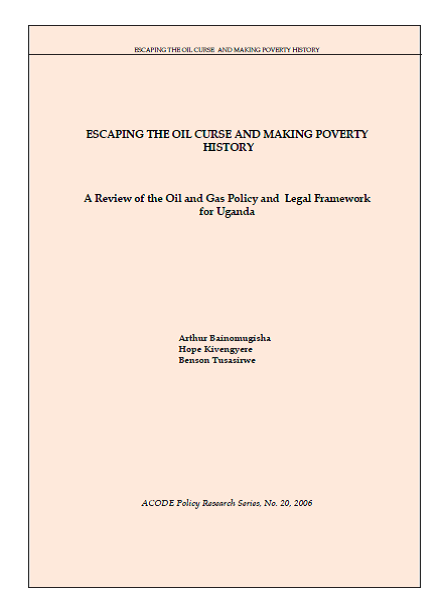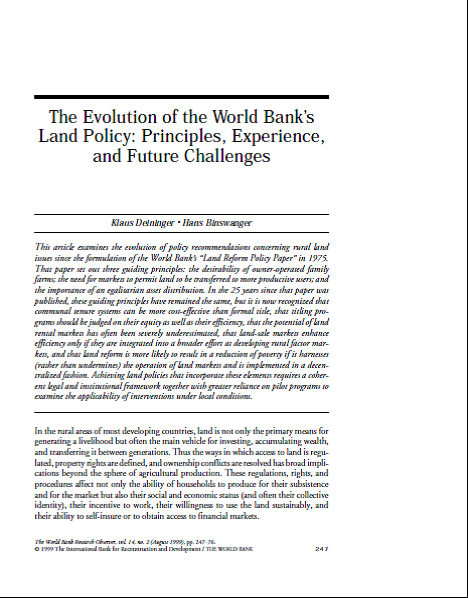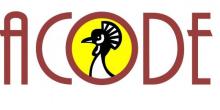
Topics and Regions
Advocates Coalition for Development and Environment (ACODE) is an independent public policy research and advocacy think tank based in Uganda working in East and Southern Africa. ACODE was first registered in 1999 as a Non-governmental organization (NGO). In 2004, the organization was incorporated as a company limited by guarantee and without having a share capital. ACODE is one of the most dynamic and robust regional leaders in cutting-edge public policy research and analysis in a range of areas including governance, trade, environment, and science and technology. ACODE has, for the last four consecutive years, been ranked in the Global Go To Think Tank Index as one of the best think tanks in Uganda and one of the top think tanks in the world. Think Tanks in Africa continue to play a major role in policy development and implementation. The Advocates Coalition for Development and Environment (ACODE) has been ranked 23 out of 92 Top Think Tanks in Sub-Saharan Africa and 29 out of 90 globally with Best Advocacy Campaign in the 2015 Global Go To Think Tank Index Report (TTI), led by the University of Pennsylvania through its Think Tanks and Civil Societies Program (TTCSP).
ACODE is non-partisan and independent and therefore does not align with any political party or political organisation. However, given the direct relationship between development policy and politics, we believe that our work is political and it must stand for certain political causes of a bi-partisan nature. Such causes are legitimate issues of research interest so long as they are defined on the basis of constitutionalism, the rule of law as well as national and regional interests as expressed in the relevant treaties, strategy documents and declarations. ACODE's work is based on three broad programmes areas: Environmental Democracy, Peace and Democracy, and Innovation and Biotechnology Policy. Our core business is to undertake advocacy-driven public policy research and analysis on contemporary and emerging public policy and governance issues that have a significant impact on national development.
Details
Location
Contributions
Displaying 41 - 50 of 52Mind the Gap
The 1995 Constitution of the Republic of Uganda is one of the most gender sensitive constitutions in the world, with clear provisions for promoting and protecting the rights of women. This is also the case in relation to women’s land rights – the Constitution clearly vests land in the people of Uganda, including the rights of women to own and inherit land. Other land laws, including the Land Act, recognize and uphold women’s rights to land as individuals, and as part of a family or community.
The “Lost Counties”
The colonial and postcolonial legacy of the “Lost Counties” land issue has recently resurfaced as a contentious ethno-political issue in Uganda. The aim of the paper is to critically examine the politics of belonging and land rights in relation to Ugandan land legislation and the “Lost Counties” issue. The empirically basis of this paper is primarily derived from field work in Kibaale District, during the period January to July 2004.
EU Task Force on Land Tenure
In recent years, issues of access to land and natural resources have been of growing concern to developing country governments and donors. Much evolution in experience and thinking has taken place over this period, with several multilateral and bilateral donors drawing up new policy papers on land.
Take anything, leave our land
The Karamoja region in Northeastern Uganda, covering an area of 27,200 square kilometers, is inhabited by around 1.2 million people who live in seven districts; Moroto, Nakapiripirit, Napak, Amudat, Abim, Kotido and Kaabong. Its residents are mainly Ngakarimojong speaking peoples, but the area is also home to the Ethur, Labwor, Pokot, and indigenous minorities such as the Tepes and the Ik.
Women’s land rights and gender justice in land governance: pillars in the promotion and protection of women’s human rights in rural areas
Across the developing world, rural women suffer widespread gender-based discrimination in laws, customs and practices cause severe inequalities in their ability to access, control, own and use land and limit their participation in decision-making at all levels of land governance.
Re-establishing an Asset Base and Protecting Access to Productive Resources in Post-Conflict areas of Northern Uganda
Northern Uganda is currently recovering from a 20-year long civil war that left the area in ruins. One of the groups, the Lord’s Resistance Army, orchestrated brutal mass murders and abductions forcing nearly two million people to live internally displaced people’s (IDP) camps for over 10 years. The war particularly affected the people of Acholi and Lango sub-regions which had previously suffered sporadic attacks by armed Karamajong cattle rustlers from north eastern Uganda.
Gendered impact of commercial pressures on land
This gender study forms part of the International Land Coalition’s ‘Commercial Pressures on Land Initiative’ Global Study. As stated by the International Land Coalition (ILC), the goal of this initiative is to support the efforts of ILC members and other stakeholders to influence global, regional and national processes on land to enable secure and equitable access to land for poor women and men in the face of increasing commercial demand for land (ILC 2010a, emphasis added).
If women hold up half the sky, how much of the world’s food do they produce?
This paper explores, conceptually and empirically, the question of how much food is produced by women. Data for labour inputs and agricultural output are used to assess women’s contribution to food and agricultural production. The study also assesses gender differences in productivity. The paper finds that a precise measure of women’s contribution to food production is impossible to establish. In general women do not produce food separately from men and it is impossible to disaggregate men and women’s contributions either in terms of labor supplied or in terms of output produced.
ESCAPING THE OIL CURSE AND MAKING POVERTY HISTORY
In this oil research paper, we have set out the challenges confronting oil producing countries in sub-Saharan Africa by giving case studies of Nigeria, Angola and Equatorial Guinea. We have also critiqued the draft National Oil and Gas Policy under formulation as well as the legal framework. We argue that the oil Dutch Disease and conflict nexus associated with oil producing countries are not a given since there are examples such as Norway which have utilised their oil revenue for transformation and sustainable development.
The Evolution of the World Bank’s Land Policy: Principles, Experience, and Future Challenges
This article examines the evolution of policy recommendations concerning rural land issues since the formulation of the World Bank’s “Land Reform Policy Paper” in 1975. That paper set out three guiding principles: the desirability of owner-operated family farms; the need for markets to permit land to be transferred to more productive users; and the importance of an egalitarian asset distribution.





